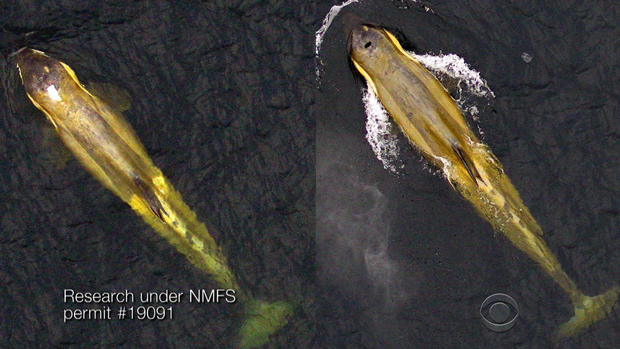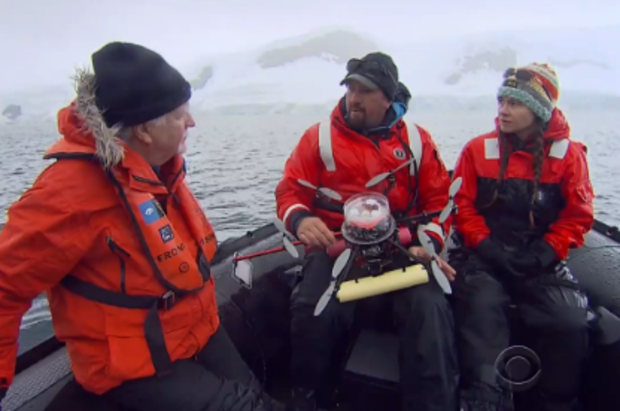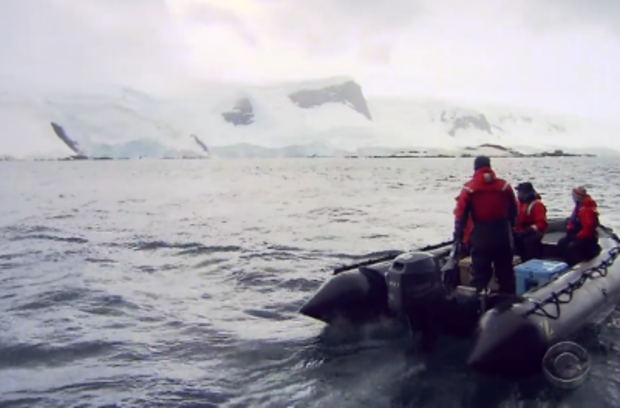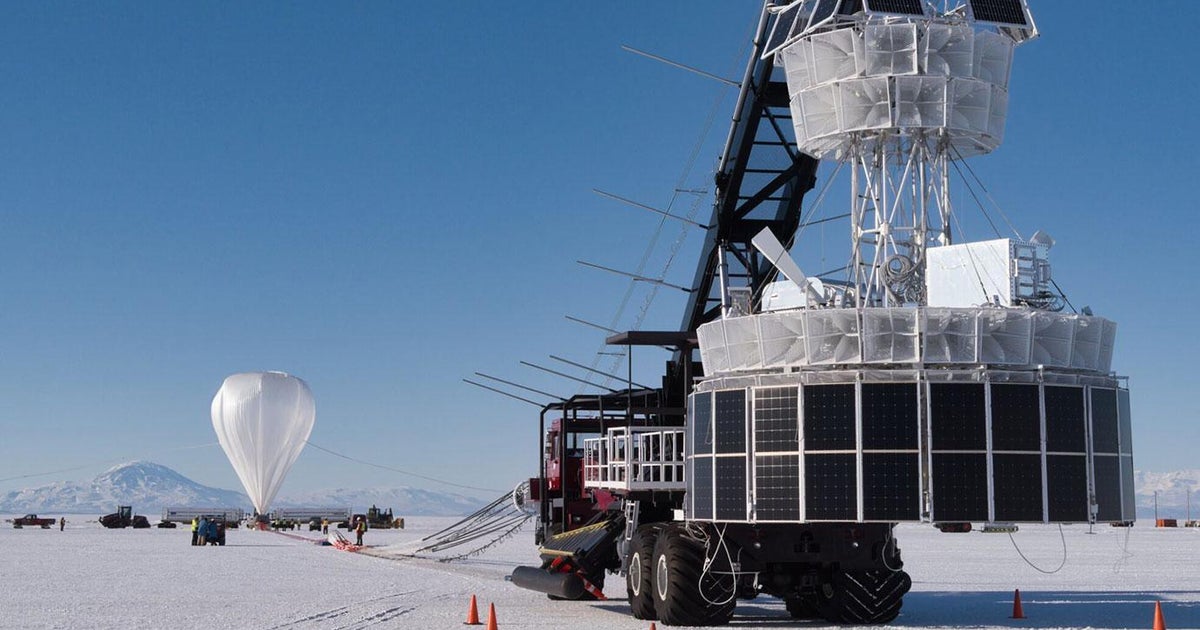Climate Diaries: Saving whales in Antarctica
ANTARCTICA -- A pod of killer whales is spotted crossing a stretch of open water. Researchers jump into small boats to chase them, just like in the old days.
This hunt, though, isn’t about killing whales. It’s about trying to save them.
“One of the reasons we study top pedators,” said John Durban, “is to understand the health of the ecosystem that supports them.”
It’s an ecosystem that is changing.
Durban and Holly Fearnbach are modern whale hunters, using modern gear -- a camera mounted on a drone -- to give the whales a health checkup, and finding some are in trouble.
“She’s very, very thin,” said Fearnbach about a whale. “You can see her ribs really clearly, so she’s lost all of the fat all along her entire body.”
“You’re looking at a dying whale here?” CBS News asked.
“Yes, you’re looking at a dying whale. And she has a dependent offspring and so, once the female dies, then she’s also going to lose her calf, so it’s very worrying,” Fearnbach said.
It’s too early to know why it’s happening, but the prime suspect? Antarctica is warming up.
“There’s, um, a problem with their food supply, and ... fewer seals,” said Durban. “And that’s what we’ve been seeing so far this year.”
“ Less ice, fewer seals -- is that a leap?” CBS News asked.
“It’s certainly a hypothesis,” Durban said.
Durban and Fearnbach have had to cobble this project together. Fearnbach works for a marine animal welfare organization called SR3, and Durban works for NOAA Fisheries department.
They get transport in Antarctica with Lindblad-National Geographic expeditions.
“This is the seventh year in a row that we’ve conducted research on board this ship,” Durban said.
And it’s the long-term commitment that’s important.
“We’re studying animals that live as long as we do, and to understand them and to get enough opportunities with them, it takes multiple years,” said Durban.
Right now, though, even the short-term commitment is in doubt.







